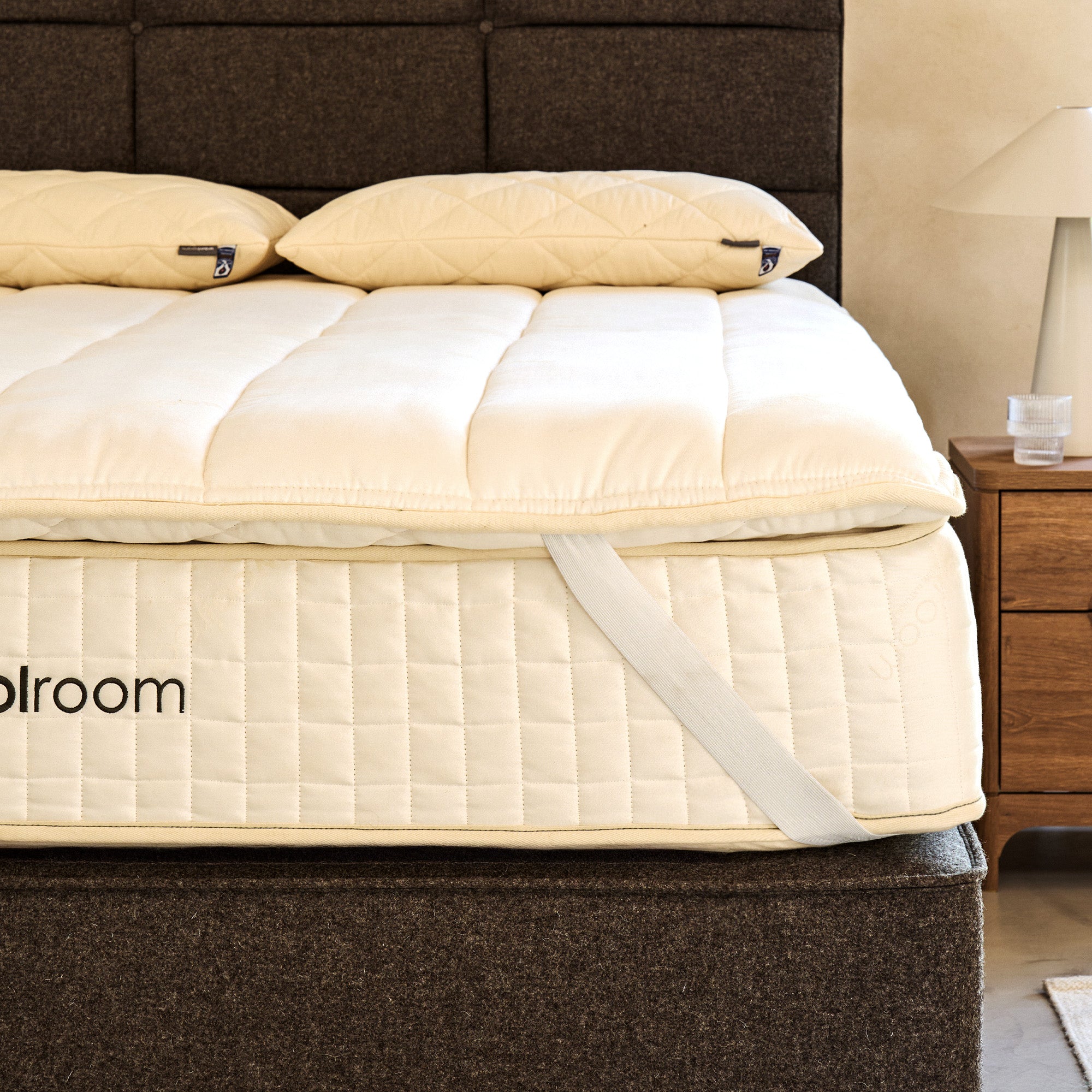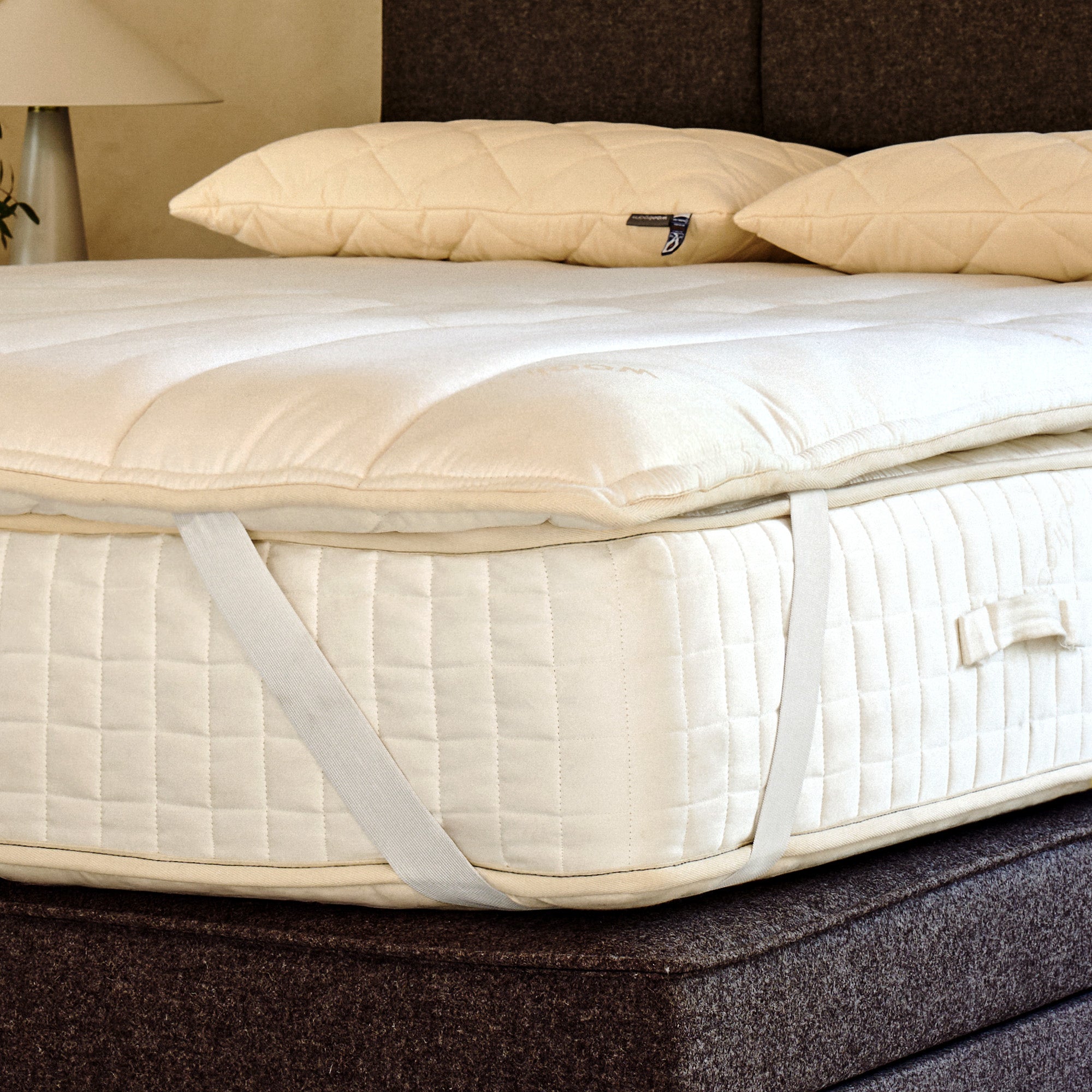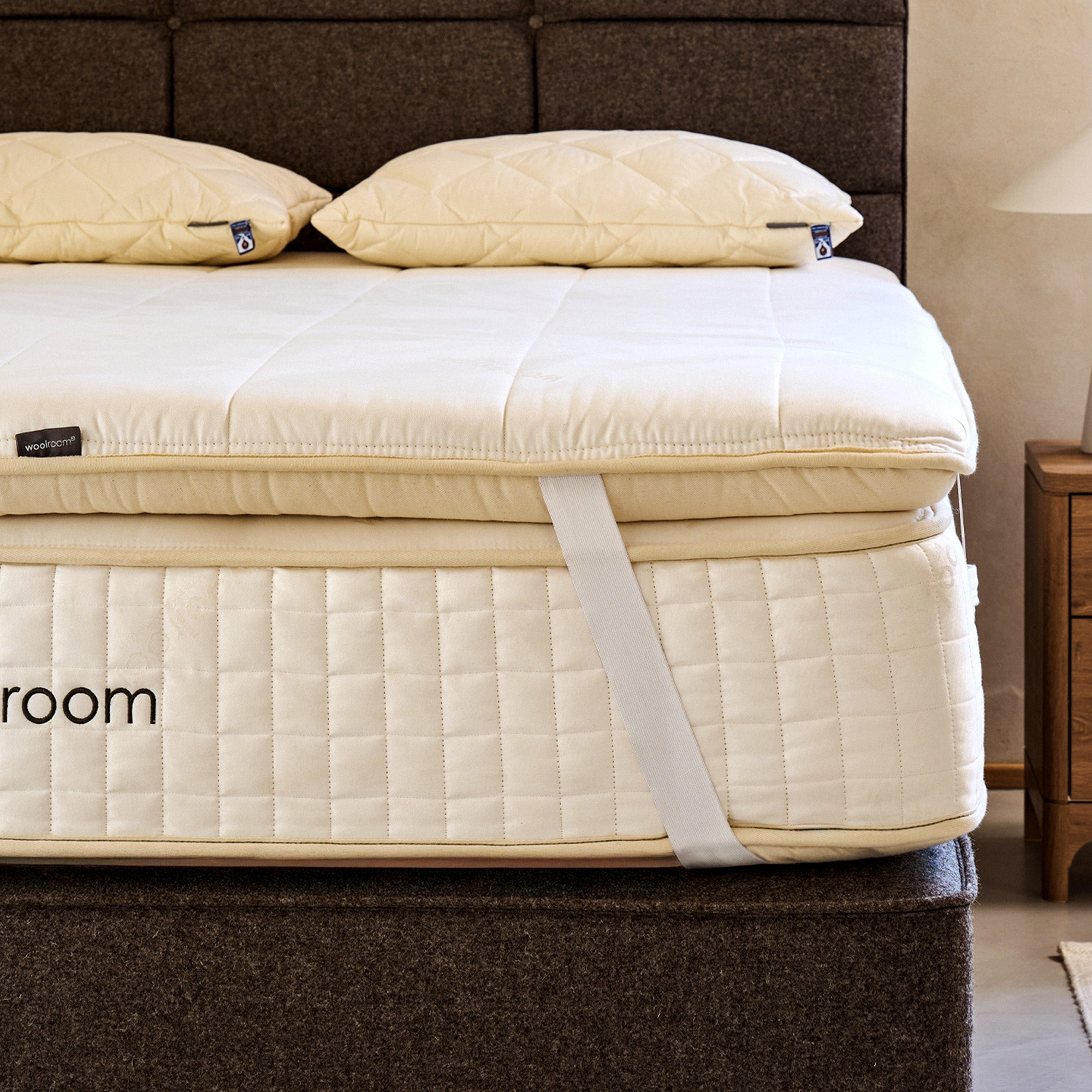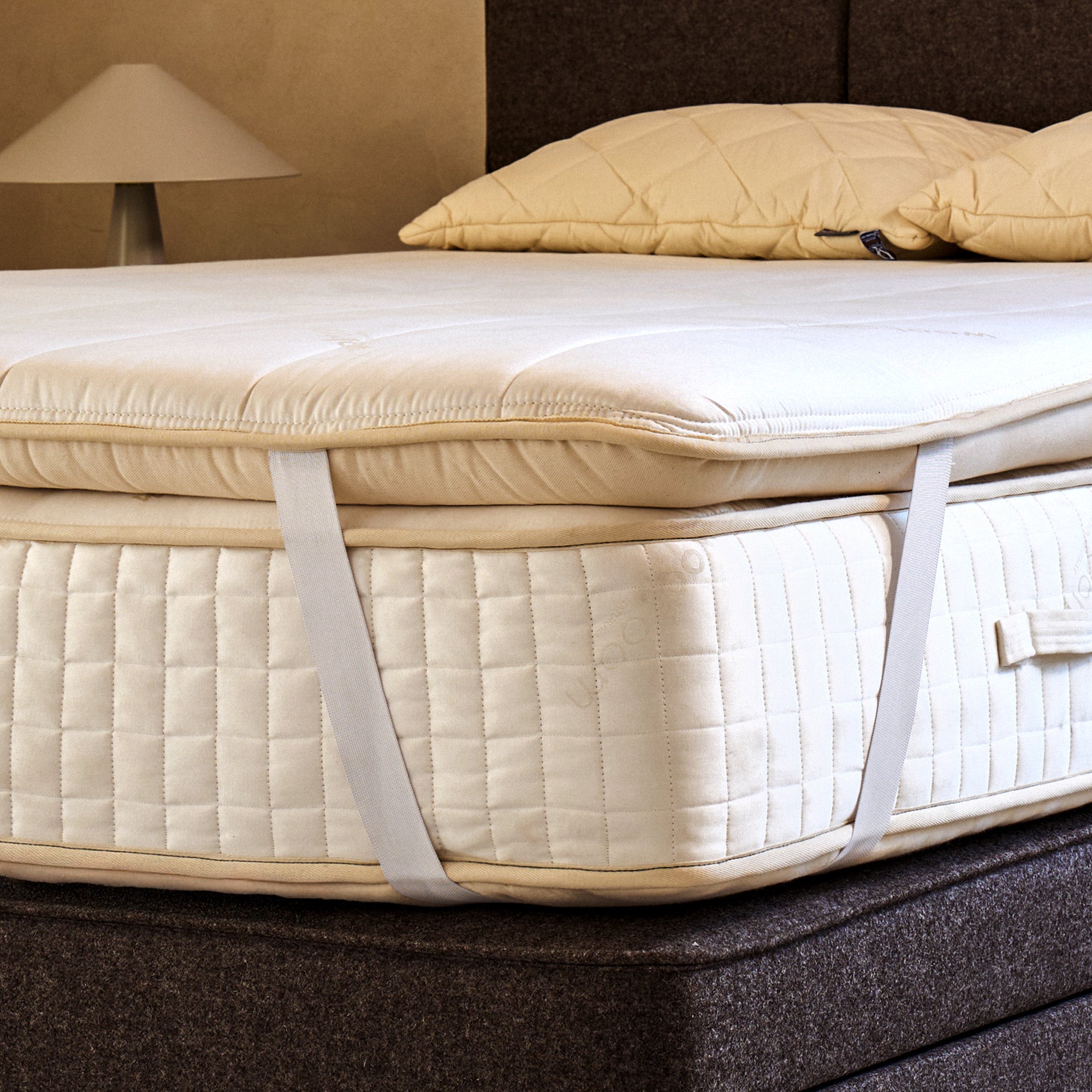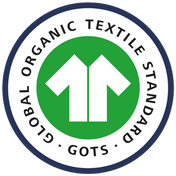Over the last few years, the mattress industry has boomed. But with countless options to choose from – and more mattresses being sold online - the search for the right mattress can be a challenge. What materials should you be looking for? What are mattresses made of? And are certifications important? A mattress is an investment in a healthy sleep, which is about more than just comfort. When you’re buying a mattress, you also want the peace of mind that comes with choosing an ethical mattress brand. Now more than ever, it’s important to find a mattress that has been safely manufactured and produced with the health of the environment in mind.
At Woolroom, we’re all about transparency, and our aim is to help and educate people who want to know more about the true meaning of organic. After all, introducing a new mattress to your sleep routine is a big deal, so it’s only right that your research delves deeper than just reading a few online reviews. What does organic really mean for your sleep? And how can you ensure you’re choosing a sustainable mattress brand?
If you want to benefit from an all-natural mattress, you’ll want to know the ins and outs of mattress production - and the reality of it.
The majority of mattresses on the US market are constructed using either memory foam or pocket springs. While both of these have proven to be a popular choice because they’re generally more affordable, there are a few reasons why you should steer clear of synthetic mattresses and opt for an all-natural mattress made from fibers such as wool.
What are mattresses made of?
So, what are mattresses made of? And what’s the reality of the mass-manufacturing process that most mattresses go through?
With so many new mattress companies emerging and the ‘mattress in a box’ trend taking off, it’s easy to see why most mattress brands are turning to quick, easy manufacturing that result in a fast turnaround. This means more manmade mattresses are being constructed, using either memory foam or pocket springs. While both have proven to be a popular choice because they tend to be more affordable, there’s a reason why the price tag is lower.
Memory foam mattresses are made with several layers of high-density foam, resulting in a heavy, thick base for sleeping on. This foam traps air inside the mattress and doesn’t facilitate the natural airflow for that desired cooling effect that a comfortable sleep should have. The majority of mattresses on the market are also made with fibers such as polyester or latex, which naturally give off odd chemical smells. That’s why investing in a natural mattress filling – as opposed to a manmade factory filling – is highly recommended.
At Woolroom, you don’t need to think twice about where your mattress has come from, or the manufacturing process of it. Each of the farms that our wool is sourced from are verified and audited to give us – and you – complete assurance. Because of this, we can guarantee the quality of the wool, and we can trace it right back to the farm it came from. The wool is graded, scoured, washed twice and delivered to our factory, before being carefully quilted and lovingly crafted into a luxury, sustainable mattress
Does mattress production harm the environment?
It probably comes as no surprise that mattresses can contribute to damaging our global footprint. But while the general day-to-day routine of mattress production doesn’t directly harm the environment, the aftermath of mattress decay and replacement causes a huge impact.
Around 20 million mattresses are thrown into landfills every year, leading to a serious landfill crisis. Just one mattress can take up 40 cubic feet of space, and because mattresses are renowned for being difficult to compact, special equipment is needed to break them down. With synthetic, memory foam and spring mattresses, this process is much more difficult.
Not only that, but mattresses made with toxins and chemical products can also have a negative impact on the environment. When these chemicals seep into the ground, they can cause soil and water pollution.
So how can you make a difference and ensure you’re supporting an ethical mattress supply chain that cares about the planet? Choose a biodegradable mattress! For instance, if you buy a wool mattress and dispose of it after many happy years of sleep, it will naturally decompose into soil in a matter of months, releasing nutrients back into the earth
The Woolroom Difference?
At Woolroom, we believe it’s important to do right by the environment at every stage of our supply chain and manufacturing process. As wool is a completely natural fiber, it’s biodegradable in nitrogen rich soils and compost. So, when your Woolroom mattress comes to the end of its long and happy life, you can rest assured that it’s not going to hang around polluting the environment for years to come.
But being an ethical mattress brand goes far beyond the mattress itself. So we refrain from using plastics wherever possible. All of our bedding is packaged in beautiful unbleached calico bags. They look great, but more importantly, they can be used again and again as an environmentally friendly tote shopper or storage bag.
But most importantly, a sustainable mattress from Woolroom is recyclable, breathable, eco-friendly and ethically sourced. From tempered steel to our traceable British wool, each material is hand-picked to provide the ultimate comfort for you, and the best possible sustainability for our planet.
Are you ready to experience the benefits of sleeping on an all-natural, chemical-free mattress? Take a look at our wool mattresses, designed to offer a healthier sleep – for a healthier planet.



